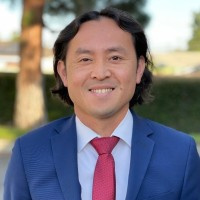Tarzana Felony Lawyer, California
Sponsored Law Firm
-
 x
x

Click For More Info:
-
Nghi Lam, Attorney at Law
17111 Beach Blvd. Suite 212 Huntington Beach, CA 92647» view mapCriminal Defense Law Results-Oriented Legal Representation
We pride ourselves on being aggressive in the courtroom while also being responsive to our clients’ needs.
800-774-3671
Aaron Mccree Lewis
Litigation, White Collar Crime, Felony, Criminal
Status: In Good Standing Licensed: 19 Years
Andrew Reed Flier
Felony, Criminal, White Collar Crime, Federal Appellate Practice
Status: In Good Standing Licensed: 36 Years
Anthony Tall
Criminal, Felony, Misdemeanor, Divorce & Family Law
Status: In Good Standing Licensed: 23 Years
Ardalon Fakhimi
Misdemeanor, Felony, DUI-DWI, Criminal
FREE CONSULTATION
CONTACTArvand Naderi
Criminal, DUI-DWI, Misdemeanor, Felony, Traffic
Status: In Good Standing Licensed: 20 Years
FREE CONSULTATION
CONTACTCarey Caruso
Real Estate Other, Felony, DUI-DWI, Criminal, Household Mold
Status: In Good Standing Licensed: 44 Years
Chad Michael Lewin
Divorce, Divorce & Family Law, Criminal, Felony
Status: In Good Standing Licensed: 28 Years
Dennis Shawn Burkley
Criminal, DUI-DWI, Felony, Wrongful Death
Status: In Good Standing Licensed: 8 Years
 Nghi Lam Huntington Beach, CA
Nghi Lam Huntington Beach, CA Practice AreasExpertise
Practice AreasExpertise
